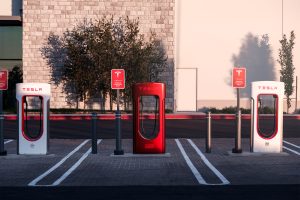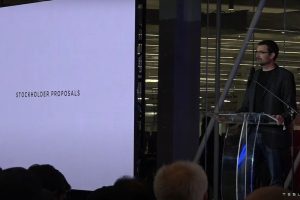- 🚫 Tesla rejects demands for a collective labor agreement at Gigafactory Berlin.
- 🌐 Managers emphasize benefits for employees, dismissing the need for external union agreements.
- 💼 Benefits include free EV charging, employee shuttle, subsidized train tickets, and bike leasing.
- 🗣 Brandenburg Economic Minister encourages Tesla to consider a collective agreement with IG Metall.
- 🤝 Giga Berlin works council leader opposes external influence, emphasizing closeness to the workforce.
- ⚖ Tesla faced pressure from Swedish union IF Metall, leading to strikes and license plate issues.
- 💰 Tesla increased wages for Giga Berlin workers, denying claims of union pressure.
In the ever-evolving landscape of labor relations, one company stands at the forefront of a debate that transcends borders. Tesla, the trailblazing electric vehicle manufacturer, is no stranger to controversy, and its latest chapter unfolds at Gigafactory Berlin. Let’s delve into the intricacies of Tesla’s rejection of collective labor agreements, the benefits offered to employees, and the surrounding challenges.
Tesla’s Defiance and Managerial Perspective
Tesla has firmly declined recent demands for a collective labor agreement at Gigafactory Berlin, sparking discussions about the company’s commitment to its workforce. Managers at the Grünheide factory are taking a unique stance, emphasizing their focus on internal solutions without unnecessary external escalations.
Benefits Beyond Borders
In a recent report from the German publication dpa International, managers highlighted the array of benefits Tesla offers to its employees, positioning them as competitive and unparalleled in the industry. The perks include free electric vehicle (EV) charging, an employee shuttle service, subsidized train tickets usable across the country, and even the ability to lease bicycles from the automaker. These benefits not only contribute to a positive work environment but also challenge the notion of external labor agreements.
Encouragement and Opposition
The Brandenburg Economic and Labor Minister, Jörg Steinbach, is encouraging Tesla to consider a collective labor agreement with IG Metall, Germany’s largest union. However, the Giga Berlin works council leader, Michaela Schmitz, vehemently opposes external influence. Schmitz stresses the closeness to the workforce and expresses concerns that agility may be lost if influenced from outside parties.
Pressure Points and Resilience
The situation escalated when the Swedish union IF Metall exerted pressure on Tesla’s German plant, leading to strikes and license plate issues. Despite these challenges, Tesla took a bold step by increasing wages for Giga Berlin workers, refuting claims that the change was a result of union pressure. This move demonstrates Tesla’s resilience and commitment to its employees.
The Broader Implications
The clash between Tesla and unions reflects broader debates on the role of collective labor agreements in modern workplaces. It raises questions about the balance between internal management and external influence, and the potential impact on workers’ rights and company agility.





